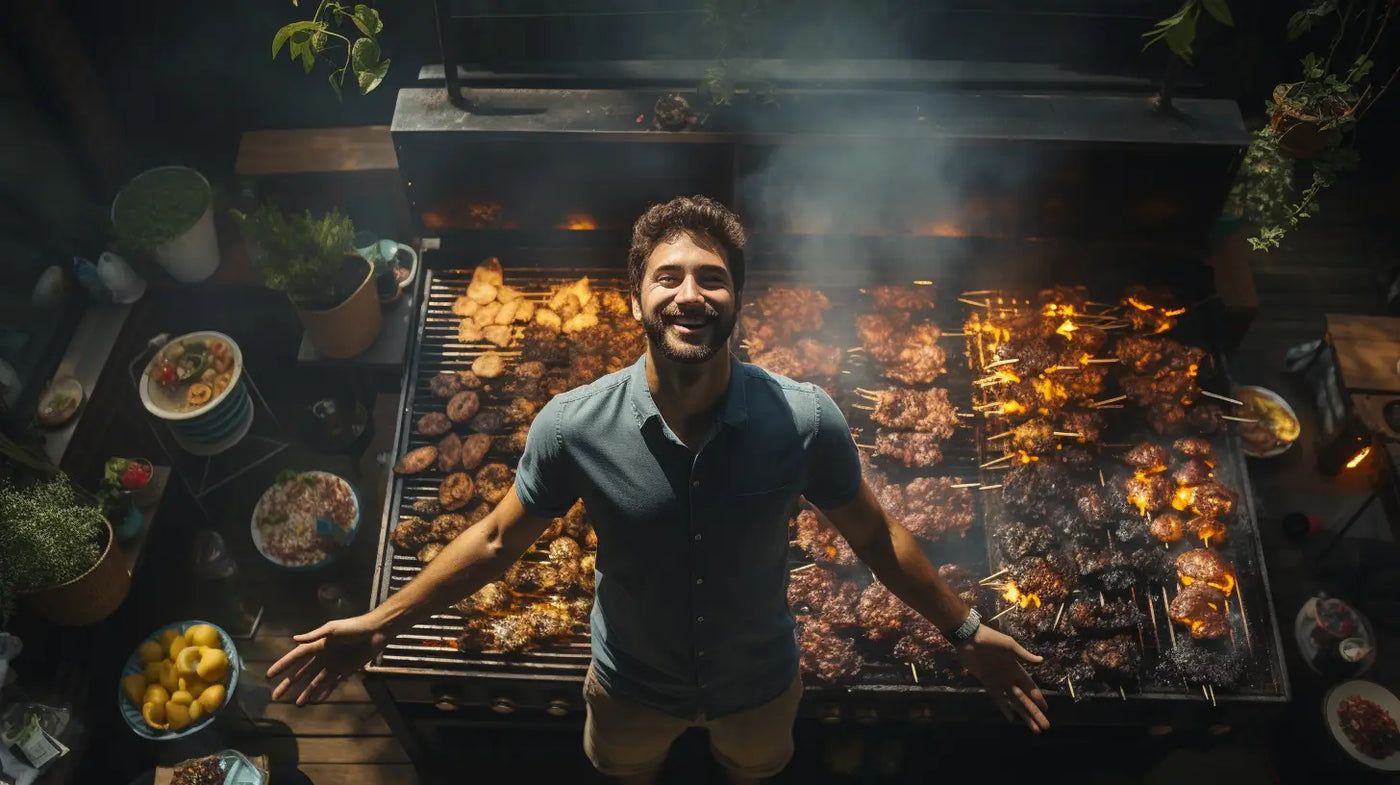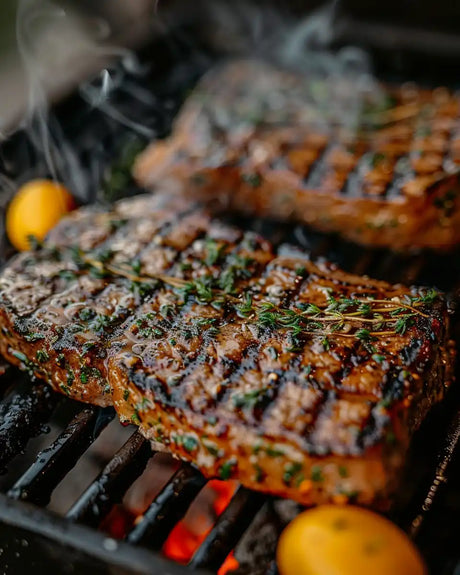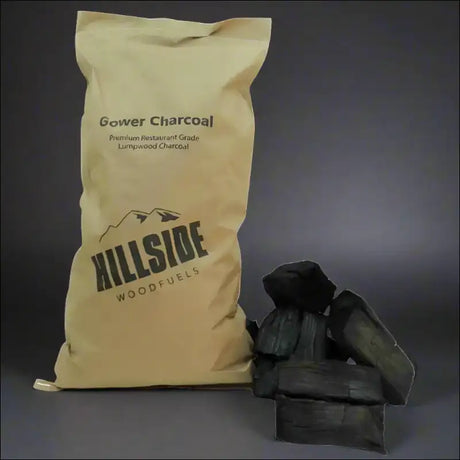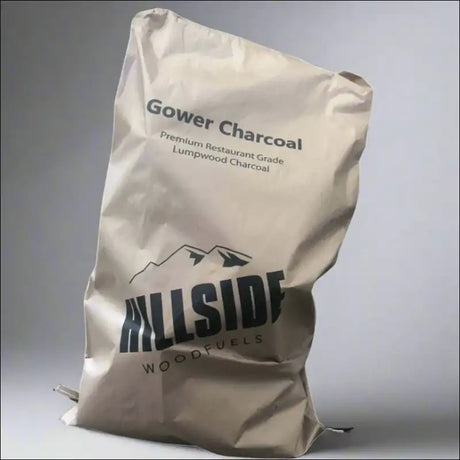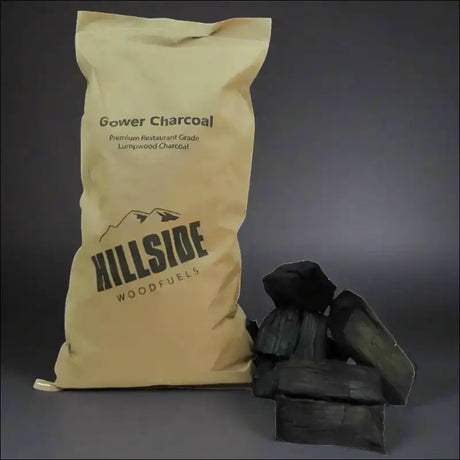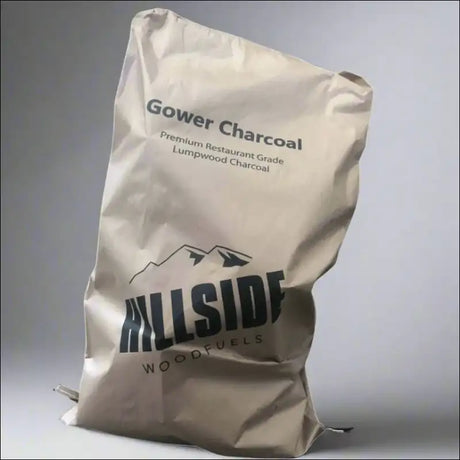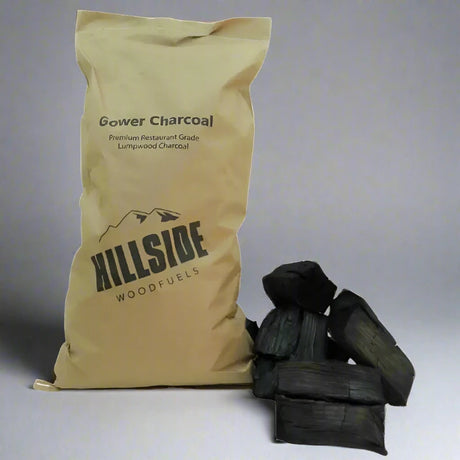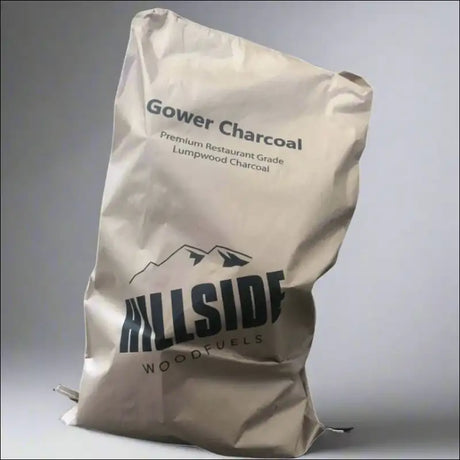Lumpwood charcoal has become a popular fuel source for grilling and smoking among chefs and barbecue enthusiasts. Its natural production and sustainable sourcing make it an appealing option. However, there are several alternatives on the market that each have their own advantages. This article will compare lumpwood charcoal to other common charcoal choices in terms of cooking speed and efficiency.
Understanding Lumpwood Charcoal
Lumpwood charcoal is made by burning wood in a kiln until only charcoal remains. This process leaves the charcoal in irregular lumps that mimic the shape of the original wood.
Key features of lumpwood charcoal:
- All-natural, no additives or binders
- Eco-friendly and sustainable sources
- Heats up quickly with minimal smoke
- Reaches high temperatures for searing
- Produces less ash than briquettes
The uneven, organic shape of the lumps allows for superior airflow and faster heating when lit. Lumpwood also lights quickly since there are no binding agents to slow ignition.
How Lumpwood Charcoal Performs
Lumpwood charcoal has proven itself exceptional for:
- High-heat searing - The high temperatures perfect for getting a nice sear on meats.
- Infusing smoky flavor - Natural smoke released during grilling infuses food with rich flavor.
- Low ash production - Burns cleanly, producing less ash and easier cleanup.
- Sustainability - Made from renewable hardwood sources. More eco-friendly.
This makes lumpwood charcoal versatile for grilling, smoking, or cooking over an open fire pit.
Comparing Common Alternatives
There are several alternatives to lumpwood charcoal that each have their own pros and cons:
Briquettes
Briquettes are manufactured from sawdust and wood chips bound with starch and additives.
Pros:
- Burns long and steady due to consistent shape/size
- Widely available
Cons:
- Contains additives/binders
- Slower to light and heat up
- Burns cooler than lumpwood
Coconut Shell Charcoal
Made from coconut shells, a renewable source.
Pros:
- Burns hotter than wood charcoal
- Sustainable and eco-friendly
- Less deforestation concerns
Cons:
- More expensive than wood charcoal
- Uncommon, harder to source
Gas/Propane Grills
Many modern grills use propane or natural gas fuel.
Pros:
- Very convenient, easy start up
- Precise temperature control
Cons:
- Lacks smoky charcoal flavor
- Reliant on non-renewable fossil fuels
Comparison Table
| Charcoal Type | Ignition Speed | Burn Temperature | Smoke Flavor | Eco-Friendly |
|---|---|---|---|---|
| Lumpwood | Fast | Very hot | Rich, smoky | Yes |
| Briquettes | Slow | Moderate | Light smoke | Somewhat |
| Coconut Shell | Fast | Very hot | Light smoke | Yes |
| Gas | Instant | Adjustable | No smoke | No |
What Affects Cooking Speed?
Several factors impact how fast various charcoal alternatives can cook food:
Charcoal Quality
- High-quality charcoal with minimal fillers burns hotter and longer. Though more expensive upfront, the fuel efficiency balances the costs.
Charcoal Structure
-
Dense, tightly packed charcoal retains heat and cooks faster. Loosely packed charcoal may burn inconsistently.
-
Lumpwood's irregular shape allows air circulation for faster heating.
Composition
-
Natural lumpwood and coconut shell charcoal contain no additives so they light faster.
-
Briquettes have binding agents that slow ignition.
Premium quality charcoal alternatives strive for an optimal blend of sustainable sourcing, density, and natural composition.
Charcoal Performance in Different Conditions
Charcoal alternatives each serve different purposes depending on the cooking method.
Slow Cooking/Smoking
For low and slow barbecue, briquettes are the best option. Their long, steady burn makes it easy to hold a constant temperature when cooking for hours.
High-Heat Grilling
Lumpwood charcoal reaches the highest temperatures needed for properly searing meats. Coconut shell charcoal also performs well for grilling due to its high heat output.
Flavor Enhancement
The natural smoke released by lumpwood infuses food with the most flavor. Briquettes impart lighter smoke flavor.
Versatility
Coconut shell charcoal can burn hot for searing, or smolder at low temps for smoking, making it the most versatile option.
Detailed Cooking Time Comparison
Here is a more in-depth look at burn times for 1 kg of different charcoal types:
| Charcoal Type | Approx. Burn Time | Notes |
|---|---|---|
| Lumpwood | 1 - 1.5 hours | Depends on wood type, density, airflow |
| Briquettes | 1.5 hours | Very consistent burn time |
| Cooking Wood | 30 - 45 min | Needs frequent replenishing |
| Gas Grill | Unlimited | Lasts as long as tank fuel supply |
Key Takeaways:
- Lumpwood and briquettes burn the longest of the charcoal options
- Cooking wood burns quick, requiring more hands-on time
- Gas convenience comes at the cost of flavor
Maximizing Efficiency
There are some best practices for getting the most out of your charcoal:
For Lumpwood
- Use large, evenly sized pieces
- Ensure charcoal is dry before use
- Store in a dry, covered location
For Briquettes
- Allow to burn until gray ash before cooking
- Compact shape prevents airflow disruption
For Coconut Shell
- Starts easily like lumpwood
- Burns the hottest of charcoal alternatives
Proper storage and prep makes a big difference in cooking efficiency. Follow the specific guidelines for your charcoal type.
The Verdict: Which is Faster?
While alternatives like briquettes and gas have benefits, lumpwood charcoal is generally the fastest heating charcoal option. It reaches searing temperatures quicker than other alternatives while also imparting food with a delicious smoky flavor. The tradeoff is that it may require more frequent replenishing for extended cooks.
For slow cooking, briquettes release heat steadily over long periods. Gas grills provide the convenience of instant, consistent heat. However, lumpwood's superior searing capabilities make it the choice for quickly cooked barbecue. Combined with sustainability and flavor advantages, these factors make lumpwood charcoal the recommended option when cooking speed is a priority.

